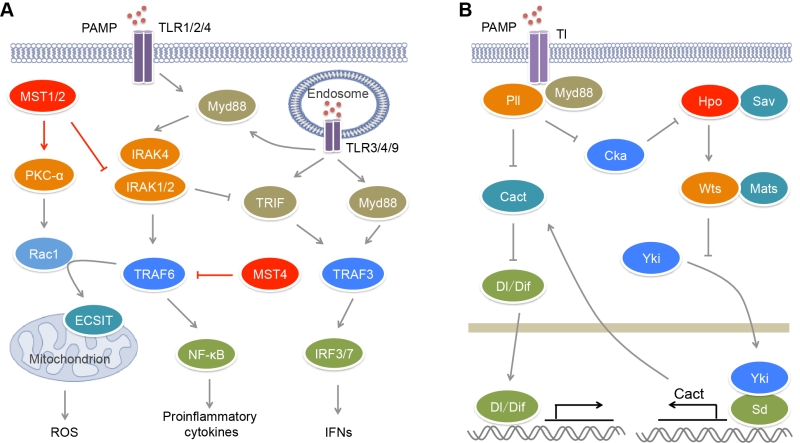Back to article: MST kinases in innate immune signaling
FIGURE 1: MST kinases in the regulation of TLR signaling. (A) In mammals, upon microbial infection, TLRs sense different kinds of PAMPs and promote the production of pro-inflammatory cytokines and IFNs through activating E3 ligases TRAF3/6 and transcription factors NF-κB and IRF3/7. TRAF6 also promotes mROS production in a Rac1- and ECSIT-dependent manner. MST1/2 could stimulate mROS production through PKC-α−Rac1−TRAF6−ECSIT pathway to clear pathogens. On the contrary, MST1 suppresses the upstream kinase IRAK1 of TRAF6 to limit the production of pro-inflammatory cytokines. MST4 also attenuates TLR-mediated inflammatory responses through directly phosphorylating and inhibiting TRAF6. The inhibitory roles of MST1 and MST4 in proinflammatory response protect body against inflammatory damage and chronic inflammation-driven HCC. (B) In Drosophila, upon microbial infection, Tl receptor promotes the activation of Hpo kinase, which in turn restricts the transcription of Dl/Dif inhibitor Cact through Hippo signaling, and thus promotes Tl-mediated antimicrobial response.

